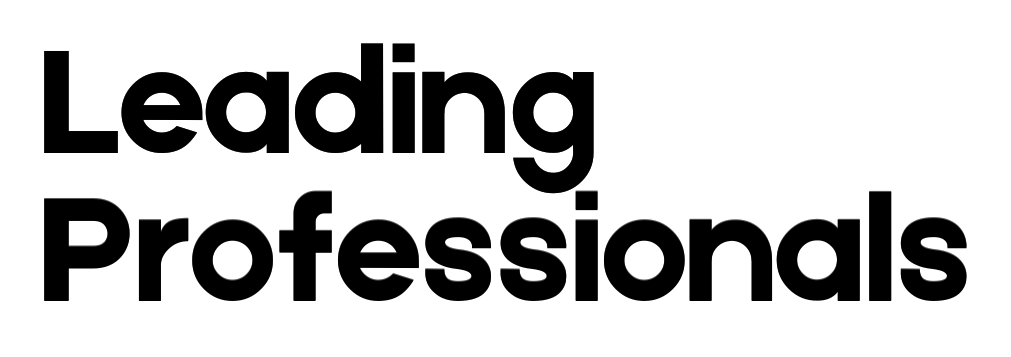
Cheryll founded CP Planning with the vision of “a world with more joy, belonging, and community well-being – where all people, regardless of their socio-economic background, are grounded in having access to adequate housing.”
CP Planning stands for Community in Public. The logo is an infinite symbol, representing the ongoing conversation and collaboration required to improve community relationships with institutions and institutional relationships with land. The “Community in Public” name may be made clearer over time as the organization continues to demonstrate what is possible from improving urban planning’s relationship with and impact on the publics the profession serves.
Cheryll reflects on the challenges of starting a new organization with pride.
The story of CP Planning is one of hard work, resolve, and resilience toward improving how urban planning impacts local communities. Their work supports historically marginalized communities to understand and apply urban planning tools to build partnerships and solutions that generate more equitable outcomes.
In 2018, Cheryll founded CP Planning within a year of receiving her undergraduate in urban planning. She was 22 years old. Reflecting on her experience and accomplishments, she notes that people do not need a Masters degree to have a positive impact in the planning profession. In its start-up phase, she secured funding for her first self-designed project by Summer 2017 and officially incorporated the organization in November 2018. In this phase, Cheryll recruited contractors to assist in the implementation of and provide expertise to projects she designed and secured funding for. 7 years in, CP Planning is recognized as an industry leader, adept at uniting racialized and non-racialized communities.
“I’ve always had an interest in starting a business – though I never thought it would be in urban planning. Early in my career, though, I learned that planning firms and governmental bodies weren’t ready to hire or adequately financially compensate young leaders dedicated to systems change focused on aligning practices with the human right guidance or responsibilities. Due to the barriers I experienced, I had no other choice but to start this venture.”
Cheryll, along with her team, has earned recognition from the likes of Spacing Magazine, Azure Magazine, The Peak, Jamaican Canadian Association, and the School of Cities, University of Toronto. Their role extends beyond planning as they are recognized as thought leaders. The organization’s rapid growth and the high demand for their expertise are testaments to the effectiveness and inspirational nature of their work.
CP Planning’s work aligns with Canada’s commitment to the human right to housing, translating the National Housing Strategy into practical, impactful solutions. They are guiding national housing programs, advising provincial representatives, and implementing partnerships across multiple cities in Ontario, Quebec, and British Columbia. This leads to immediate progress and paves the way for sustainable advancements in urban planning.
Cheryll decided to start CP Planning to improve relationships between people, institutions, and land.
Overtime, she developed clarity that this required the alignment for urban planning practices to uphold the human right to housing, economic, and cultural opportunities.
Although Cheryll was always interested in starting a business, she did not always consider that she would establish one of urban planning. She reflects on the impact of support from advisors and mentors identifying her strengths, encouraging her to design and pitch projects for funding, and to market herself through the launch of a brand and website. This encouragement helped her push through hesitation and difficulty – enabling the development of the organization and its successes today.
In the coming years, CP Planning aims to support established urban planning leaders and policymakers improve their relationship and solidarity with marginalized communities and to support marginalized communities apply professional approaches to innovating planning practices. Establishing marginalized communities as formal parts of the planning economy, thus having their labor recognized, is essential. This contrasts with how marginalized voices are presently discredited or ignored in traditional planning practices.
Working with the right clients is integral to achieving this mission. CP Planning clients have a demonstrated commitment to supporting marginalized communities and a willingness to go beyond token gestures. Together, they work toward generating meaningful progress to improve systemic support and generate more equitable outcomes for these communities. Diverse perspectives and participatory decision-making processes are valued and embraced for this work to be successful.
- WoodGreen Community Services
- Margarets Housing and Community Support Services
- City of Toronto, Poverty Reduction Strategy Office
- City of Toronto, Confronting Anti-Black Racism Unit
- Toronto Non-profit Network
Resources Cheryll has contributed to, along with other industry leaders, are Roadmap (CP Planning Program) and House Divided (Book).
- Roadmap: The Roadmap for Redevelopment Plans to Confront Systemic Racism is an action-oriented program dedicated to dismantling the systemic barriers that have long prevented racialized communities from influencing and benefiting from the development of affordable housing. https://cpplanning.ca/roadmap
- Canada’s Symposium at the Biennale Architettura 2023: Canada’s composition was a collaboration between architects, policy, and grassroots leaders which showed, on an international stage, leading Canadian practices and proposals for increasing housing affordability and advancing reconciliation with Indigenous communities. https://aaha.ca/en/page/exhibition
- House Divided: A citizen’s guide to making the big city a place where we can afford to live. Using Toronto as a case study, this anthology unpacks the affordability crisis and offers innovative ideas for creating housing for all ages and demographic groups. https://chbooks.com/Books/H/House-Divided
Cheryll is establishing a workplace culture that prioritizes diversity, authenticity, and a collaborative environment.
As a Black-led, federally-incorporated non-profit organization, CP Planning showcases a leadership dynamic rarely seen in the urban planning industry. This distinction is further highlighted by the fact that over 80% of CP Planning staff identifies as Black or a person of color. This diverse composition contrasts starkly with the broader Ontario urban planning sector, where less than 25% of professionals in private firms are racialized.
One motivator for Cheryll’s leadership is to create an environment that she wishes would have been available to her during her job-seeking days: a workplace where she can conduct urban planning work that aligns with her heart – where employees do not have to conduct harm onto others or ignore their commitment to community due to the limitations of prevailing planning practices.
She aims to foster an environment for people to be their authentic selves, strive for excellence, and be accountable. This is achieved with mangers meeting with their direct reports on a weekly basis, her conducting monthly one-on-ones with team members who don’t report directly to her, and encouraging a welcoming atmosphere to celebrate wins and maintain space for people to identify pathways for growth. This includes acknowledging that everyone has a different starting place and different barriers to their ability to fully express or implement their values. Cheryll is open and direct with her colleagues about how all can improve and keep track of commitments.
“It’s crucial to foster a space where everyone feels valued and empowered to contribute, ensuring continuous learning and growth. Equally important is upholding ethical practices and a commitment to social impact, aligning with our core mission.”
She now embeds these intentions in her leadership of CP Planning. Together, they employ a unique human rights-based framework in community planning, integrating legal case studies with practical experience to innovate processes and prioritize the economic, social, and cultural rights of marginalized communities.
By broadening one’s definition of ‘qualified’, employers can benefit from greater diversity and better outcomes.
As an employer, Cheryll hires candidates based on their creativity, understanding of urban planning matters and abilities to engage with communities. She notes that incredible, job-ready knowledge and skills can be generated through practical experience (e.g. community-led engagement with planning processes), or even a two-year college program. She notes that the cost of higher education is a barrier for many individuals and can prohibit the urban planning profession from reflecting the communities it serves.
“Value people for their potential, do not limit yourself or this industry to formal methods of validation.”
This ethos is in part due to her past experience as a jobseeker. Cheryll reflects on being turned down for a job opportunity in 2019. At the time, she had already demonstrated qualifications and experience suitable for the role and had achieved notable career milestones, including: publishing of a book; self-managing city-wide projects; and, being a panelist for various industry organizations. After being rejected for the role, Cheryll discovered that the selected candidate was a white-man with no working experience – only a Masters degree.
This experience is echoed in research and broader discourse on barriers to employment that impact professionals of underrepresented demographics, including racialized people and women. For Cheryll, this experience was one of several that motivates her to create space and opportunity for people who may have had similar experiences.
“My greatest lesson is that your voice and commitment to community is valuable – even if the industry isn’t ready to acknowledge it yet. I am grateful that I pushed through the hard times to get to where the business is now. It was a very hard 6 years of development.”
Cheryll’s leadership of CP Planning reflects the organization’s dedication to addressing systemic issues.
As an industry leader, CP Planning has garnered recognition and accolades, underscoring its effectiveness and influence. Cheryll’s commitment to fostering a diverse, authentic, and collaborative workplace culture further distinguishes CP Planning in the urban planning sector. The organization’s efforts extend beyond traditional planning boundaries, facilitating for the economic inclusion of marginalized communities to accelerate the design and implementation of solutions to systemic issues. By sharing resources, knowledge, and networks, CP Planning aims to improve outcomes of planning practices.
CP Planning’s vision of a world filled with joy, belonging, and community well-being, reflects its commitment to ensuring access to adequate housing for all, irrespective of socio-economic backgrounds.
Cheryll remains focused on contributing to industry change and leading CP Planning. She is both proud of her accomplishments and grateful to those who have encouraged and supported her in her entrepreneurial journey.





